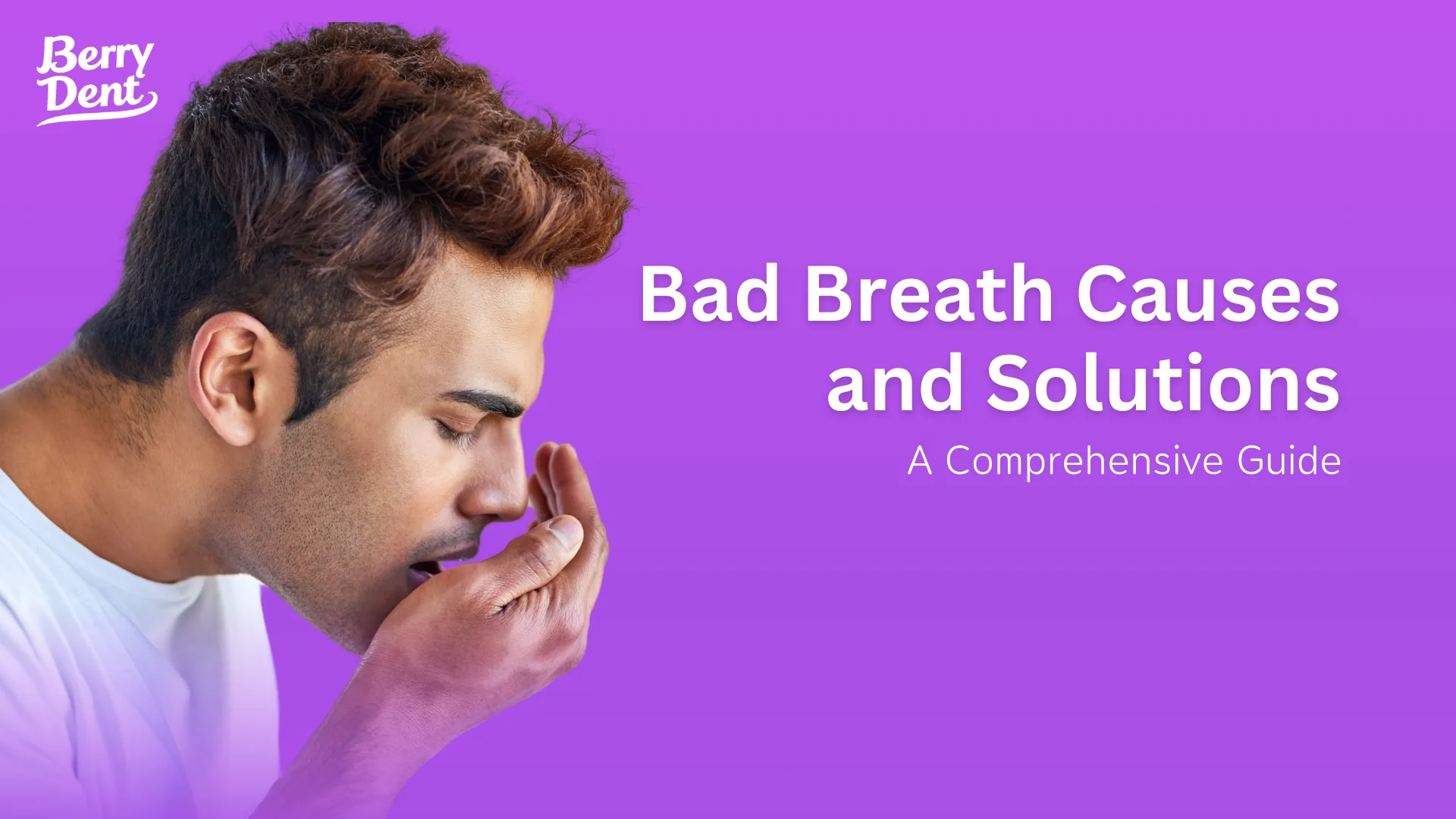Bad breath is an oral health issue that impacts confidence in communication and can affect personality and social relationships. While not a severe disease, chronic bad breath may indicate underlying health abnormalities and reduce quality of life. Today, Berry Dent provides in-depth insights into the causes of bad breath and effective, science-backed solutions for practical implementation.
Primary Causes of Bad Breath
1. Oral Bacteria
The main cause of bad breath is the release of foul-smelling volatile sulfur compounds (VSCs) by bacteria in the mouth. These bacteria thrive on food debris, proteins, and amino acids trapped between teeth, tongue, or dental cavities. The more food residue accumulates, the more bacteria multiply, intensifying bad breath. The odor often originates from areas where debris gets trapped, such as tooth gaps, tongue crevices, or cavities.
2. Poor Oral Hygiene
Inadequate or inconsistent oral care, such as improper brushing or flossing, leaves food particles in the mouth, which bacteria feed on, leading to bad breath. Additionally, plaque buildup on the tongue is a major contributor to bad breath.
3. Dry Mouth
Saliva plays a critical role in washing away food particles and bacteria. Dry mouth (xerostomia), caused by mouth breathing, dehydration, medications, or certain diseases, reduces saliva production, allowing bacteria to proliferate and worsen bad breath.
4. Certain Foods
Foods with strong natural odors, such as garlic, onions, or spices, can cause temporary bad breath. Odor-causing compounds from these foods enter the bloodstream and are exhaled through the lungs.
5. Smoking
Smoking dries the mouth, irritates oral tissues, and increases bacterial growth, leading to persistent bad breath and a higher risk of gum disease.
6. Oral Diseases
Conditions like gingivitis, periodontitis, tooth decay, or poorly fitted dentures create environments where bacteria thrive, causing bad breath.
7. Systemic Diseases
In some cases, bad breath may signal health issues such as diabetes, acid reflux, sinusitis, liver/kidney disease, or certain cancers. Persistent bad breath should prompt medical consultation.
How to Eliminate Bad Breath Permanently
Maintain Good Oral Hygiene
Brush teeth properly with fluoride toothpaste (at least 1500 ppm) twice daily for 2 minutes, after meals and before bed. Floss daily to remove food particles between teeth, and clean the tongue thoroughly to eliminate bacteria.
Stay Hydrated
Drinking water regularly increases saliva production, which helps rinse the mouth and reduce bacteria.
Chew Sugar-Free Gum
Sugar-free gum stimulates saliva flow, washing away food debris and bacteria.
Eat a Balanced Diet
Avoid strong-smelling foods like garlic and onions. Increase intake of high-fiber fruits and vegetables to naturally clean teeth and reduce bacterial buildup.
Regular Dental Visits
Visit a dentist every 6 months for checkups and professional cleaning to prevent and treat oral diseases.
Consult a doctor
If bad breath persists despite good oral care, seek medical advice to identify systemic causes.
Berry Dent Herbal Fluoride Toothpaste combines the benefits of Thai herbal extracts with 1500 ppm fluoride for comprehensive oral care. It prevents cavities, reduces bacterial buildup, and eliminates bad breath with natural ingredients. Berry Dent supports long-lasting fresh breath and healthy gums, ensuring a confident smile every day.


